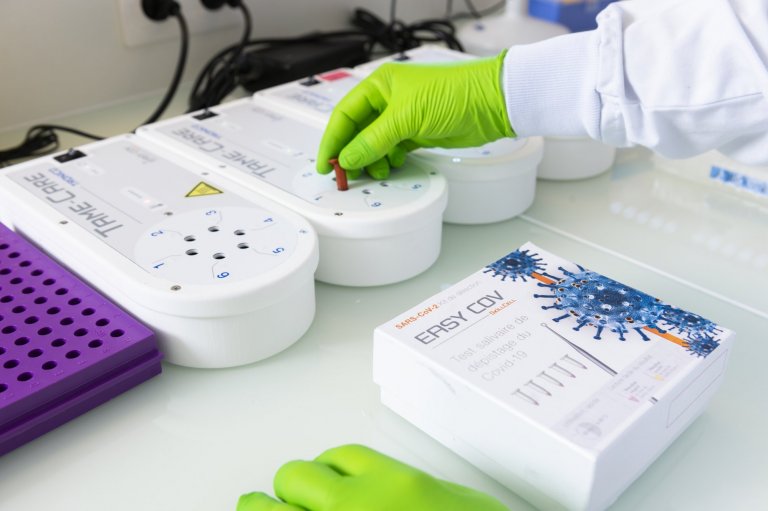
© Cyril Frésillon / Sys2Diag / CNRS Images
View the mediaScientific news
More than a year after SARS-CoV-2 burst on to the world stage and while the pandemic still rages, causing an unprecedented health and economic crisis, scientists are continuing their relentless battle against the disease using every available means.

© Cyril Frésillon / Sys2Diag / CNRS Images
View the mediaAs France has exceeded 110,000 deaths due to Covid-19 epidemic (which has taken more than 4 million lives worldwide) and as the start of the largest vaccination programme in history finally brings a glimmer of hope, the battle is still being waged in laboratories on a microscopic scale. The vaccine is not the only solution: in Lille, Marseille and Lyon, for example, scientists from CNRS are working on developing medicines that are effective against the coronavirus, which means not only knowing everything about its structure and weaknesses but also developing effective molecules. This race against time is being run in vitro, but also in vivo… Scientists are also working to produce faster, more effective tests like the EasyCov saliva test, made in Montpellier, which only needs a small saliva sample. Watch CNRS’ various reports on the fight against Covid-19 in the past year, which has seen scientists become the foot soldiers.
The video "Mathematicians on the Covid front" (only available in French), explains how they develop models to adapt school schedules, optimize the layout of beds in a hospital or study the places most affected by contamination.
Our work is guided by the way scientists question the world around them and we translate their research into images to help people to understand the world better and to awaken their curiosity and wonderment.